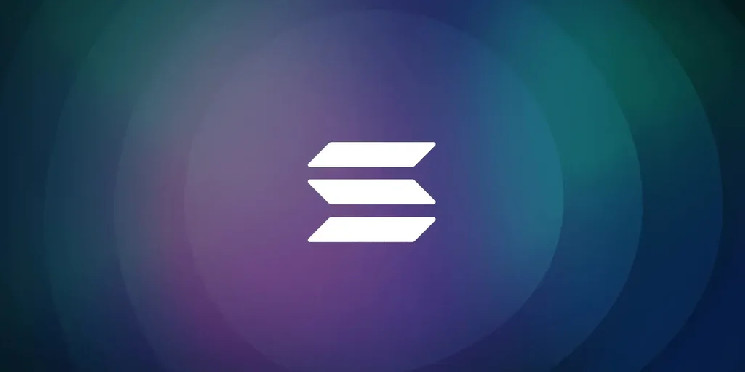Blockchain
Solana is now measuring information pertaining to its carbon emissions in actual time, the Solana Basis introduced immediately. It’s a claimed first-of-its-kind transfer for “a serious sensible contract blockchain community.” Sensible contracts maintain the code that powers decentralized apps (dapps) and NFT tasks.
Starting immediately, Solana will usually replace a devoted dashboard with statistics monitoring key environmental metrics for the community: its power consumption, carbon footprint, and community energy depth, amongst different information. It pulls real-time information from software program put in on Solana validator nodes, however the dashboard is simply up to date each two weeks.
The emissions tracker, developed in collaboration with carbon information platform Trycarbonara, gathers statistics from on-chain information, in addition to information collected instantly from a consultant pattern of Solana validators.
Helium Completes Solana Migration, Minting Almost 1M NFTs within the Course of
That extra granular information, which tracks when particular person validators are on-line and offline, and the geographic context by which they use power, gives a way more exact measurement of Solana’s power consumption than beforehand relied-upon estimates.
Environmental impression has lengthy been a hot-button situation for blockchain networks, which may suck up enormous quantities of power to generate new cryptocurrency and facilitate on-chain transactions.
Although maybe much less visibly detrimental, air pollution generated by software program and computer systems—a sector by which crypto-related outputs play a serious function—accounts for nearly twice that produced by your entire aviation business, in line with latest research.
Members of the Solana Basis, the group that oversees the wellbeing of the decentralized Solana community, hope that by taking the lead in disclosing their very own community’s impression on the local weather, they’ll encourage different networks to do the identical—and alter how crypto customers take into consideration their relationship to the surroundings within the course of.
“I’d love for this to grow to be an business normal,” Coverage Lead Amira Valliani instructed Decrypt. “We ought to be trustworthy about what emissions appear like. If you realize what’s going on on the blockchain stage as a consumer, you may make aware selections about your utilization of that chain.”
However making that info publicly accessible for all crypto customers would require the lively participation of most main blockchain networks in disclosing their carbon footprint.
Due to publicly accessible on-chain information, analysts could make estimates as to the environmental impression of sure blockchains. However with out information volunteered by contributors specifically networks, these estimates might finally be inaccurate.
“That information is usually both underestimated or overestimated, however there’s by no means certainty round it,” Hayagriv Sridharan, co-founder and CEO of Trycarbonara, instructed Decrypt. “We will mannequin any blockchain with out its basis’s assist, however that information isn’t going to be as correct or as fruitful as when we’ve a greater collaboration.”
The controversy rages
Sridharan is optimistic that different blockchains will observe Solana’s instance and supply that assist. However doubtlessly complicating issues is the willingness of contributors in proof-of-work networks like Bitcoin—which have a tendency to make use of far, much more power than proof-of-stake networks like Solana and Ethereum—to voluntarily expose their livelihoods to extra scrutiny by environmental advocates.
Proof-of-stake blockchains let validators—who deposit (or stake) sizable quantities of crypto right into a community—to course of on-chain transactions and generate new cryptocurrency within the course of. Nonetheless, proof-of-work blockchains require miners to course of transactions by directing super quantities of pc energy at difficult-to-solve puzzles, which reward winners with new crypto.
Bitcoin’s Power Transparency Is a Double-Edged Sword: Hut 8 Mining CEO
A single Bitcoin transaction, for reference, consumes 5.79 million occasions the power emitted by a proof-of-stake Solana transaction, in line with Trycarbonara. And as reward provides of proof-of-work cryptocurrencies like Bitcoin develop increasingly finite, the problem ranges of these puzzles—and the power required to resolve them—are solely growing.
Final week, the Texas Senate handed a invoice limiting the power of Bitcoin miners to empty power from the precarious Texas power grid throughout demand spikes. A North Carolina county is at the moment mulling a one-year ban on cryptocurrency mining to evaluate the apply’s unfavorable environmental results.
A few of the backlash across the environmental impression of crypto has quieted since Ethereum’s profitable “merge” final fall, which transitioned the community from its long-running proof-of-work mannequin to proof-of-stake. The transfer reduce Ethereum’s estimated carbon footprint by over 99.99%, per the Crypto Carbon Rankings Institute.
Nonetheless, the broader debate flared up once more lately after a controversial New York Instances article examined the environmental toll of Bitcoin mining. The story was slammed by critics as “false and deceptive,” “politically-driven,” and as a “hit piece” constituting a “monument of mental laziness.”
Some Bitcoiners declare that such experiences don’t take into account the quantity of unpolluted power used to mine Bitcoin, or what they see as a constructive impression on grid stability. Different crypto advocates observe that centralized industries don’t present transparency into power utilization, making it inconceivable to supply a real comparability to the standard banking system or the footprint of tech giants, for instance.
Solana Saga Assessment: The Web3 Smartphone Has Arrived
Clearly, the subject stays a delicate one on either side of the talk. However a tracker like Solana’s is one other step ahead for transparency and elevated accuracy of power reporting within the Web3 world. What impression it should have, although, is as much as particular person crypto customers to determine.
“We won’t compel folks to do something. Finally, folks make their very own decisions,” Valliani stated. “That’s how a decentralized surroundings works. However decentralization may also really empower individuals who actually care about these items to make a distinction.”






